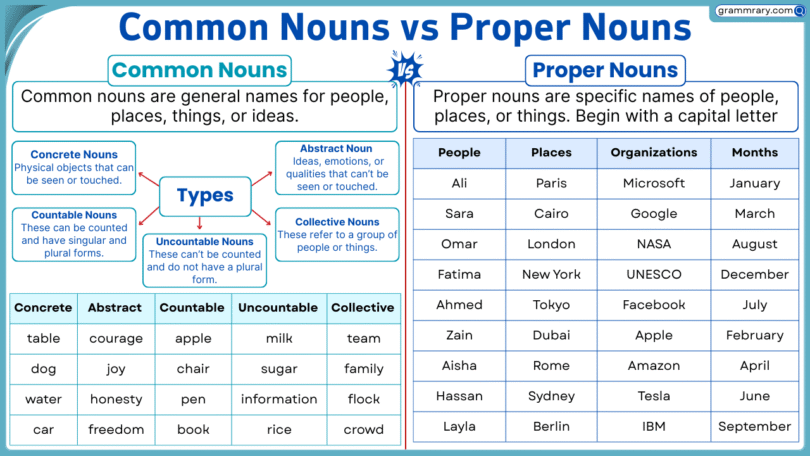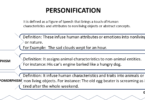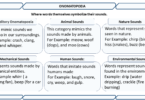Nouns are words that name people, places, things, or ideas. They are divided into two main types: common nouns and proper nouns. Common nouns are general names for any person, place, or thing (like city, teacher, or book). On the other hand, proper nouns are specific names for particular people, places, or things (like London, Mr. Smith, or Harry Potter). The key difference is that proper nouns always begin with a capital letter, while common nouns do not (unless they start a sentence). In this article, you will learn Common Nouns vs Proper Nouns with Examples in English helps in writing correctly and clearly.
What Are Common Nouns?
Examples of Common Nouns
| Category | Examples |
|---|---|
| People | teacher, doctor, student |
| Places | city, park, country |
| Things | book, car, phone |
| Ideas | love, freedom, happiness |
Types of Common Nouns
Common nouns can be further classified into different types:
1. Concrete Nouns
Concrete nouns are names of things we can see, touch, hear, smell, or taste. Learning them helps us talk about real objects around us. Examples include apple, chair, car, and dog. These words make our sentences clear and easy to understand. Using concrete nouns improves speaking and writing skills in daily life.
- Example: table, dog, water
2. Abstract Nouns
- Example: courage, joy, honesty
3. Countable Nouns
Countable nouns are names of things we can count using numbers. They have singular and plural forms. For example: one apple, two apples, three apples. Learning countable nouns helps us talk about quantity in daily life. These nouns make sentences clear and easy to understand
- Example: apple (apples), chair (chairs)
4. Uncountable Nouns
Uncountable nouns are names of things we cannot count with numbers. They have no plural form. For example: water, sugar, rice, and air. Learning uncountable nouns helps us speak and write correctly about materials, ideas, and substances in daily life.
- Example: milk, sugar, information
5. Collective Nouns
Collective nouns are names for a group of people, animals, or things. They show many as one unit. For example: a team of players, a bunch of grapes, a herd of cows. Learning collective nouns helps us speak more clearly and describe groups easily in daily conversations
- Example: team, family, flock
What Are Proper Nouns?
Examples of Proper Nouns
| Category | Examples |
|---|---|
| People | John, Emma, Michael |
| Places | London, Mount Everest, Amazon River |
| Brands/Companies | Nike, Coca-Cola, Google |
| Days/Months | Monday, December |
| Titles | Harry Potter, The Great Gatsby |
Proper nouns help identify unique entities.
Key Differences Between Common and Proper Nouns
| Feature | Common Nouns | Proper Nouns |
|---|---|---|
| Specificity | General names | Specific names |
| Capitalization | Lowercase (unless starting a sentence) | Always capitalized |
| Examples | girl, city, book | Mary, Paris, The Bible |
30 Examples of Common Nouns vs Proper Nouns in English
| Common Noun Sentence | Proper Noun Sentence |
|---|---|
| The boy plays outside. | John plays outside. |
| The girl sings well. | Emma sings well. |
| The city looks beautiful. | New York looks beautiful. |
| The river flows fast. | Amazon River flows fast. |
| The car moves quickly. | Toyota moves quickly. |
| The man works hard. | David works hard. |
| The teacher explains well. | Mrs. Smith explains well. |
| The dog runs fast. | Buddy runs fast. |
| The school opens early. | Oxford School opens early. |
| The restaurant serves tasty food. | McDonald’s serves tasty food. |
| The mountain stands tall. | Mount Everest stands tall. |
| The store sells clothes. | Walmart sells clothes. |
| The doctor treats patients. | Dr. Brown treats patients. |
| The writer writes books. | Shakespeare writes books. |
| The country celebrates freedom. | India celebrates freedom. |
| The team wins the match. | Manchester United wins the match. |
| The actor acts in movies. | Tom Cruise acts in movies. |
| The park looks green. | Central Park looks green. |
| The ocean covers the earth. | Pacific Ocean covers the earth. |
| The company makes gadgets. | Apple makes gadgets. |
| The train arrives late. | Eurostar arrives late. |
| The monument attracts tourists. | Eiffel Tower attracts tourists. |
| The college teaches students. | Harvard teaches students. |
| The festival brings joy. | Christmas brings joy. |
| The newspaper prints news. | The Times prints news. |
| The museum displays history. | Louvre Museum displays history. |
| The book contains knowledge. | Harry Potter contains knowledge. |
| The planet orbits the sun. | Mars orbits the sun. |
| The bridge connects cities. | Golden Gate Bridge connects cities. |
| The lake reflects the sky. | Lake Superior reflects the sky. |
List of Common Nouns in English
Boy
Girl
City
River
Car
Man
Teacher
Dog
School
Restaurant
Mountain
Store
Doctor
Writer
Country
Team
Actor
Park
Ocean
Company
Train
Monument
College
Festival
Newspaper
Museum
Book
Planet
Bridge
Lake
List of 30 Proper Nouns in English
John
Emma
New York
Amazon River
Toyota
David
Mrs. Smith
Buddy
Oxford School
McDonald’s
Mount Everest
Walmart
Dr. Brown
Shakespeare
India
Manchester United
Tom Cruise
Central Park
Pacific Ocean
Apple
Eurostar
Eiffel Tower
Harvard
Christmas
The Times
Louvre Museum
Harry Potter
Mars
Golden Gate Bridge
Lake Superior
Common Mistakes to Avoid
- Incorrect Capitalization
- ❌ i live in new york.
- ✅ I live in New York.
- Using Articles with Proper Nouns
- ❌ The Emma is my friend.
- ✅ Emma is my friend.
- Confusing Common and Proper Nouns
- ❌ I read a Book yesterday. (unless referring to a specific book title)
- ✅ I read a book yesterday.
Learn more helpful articles









